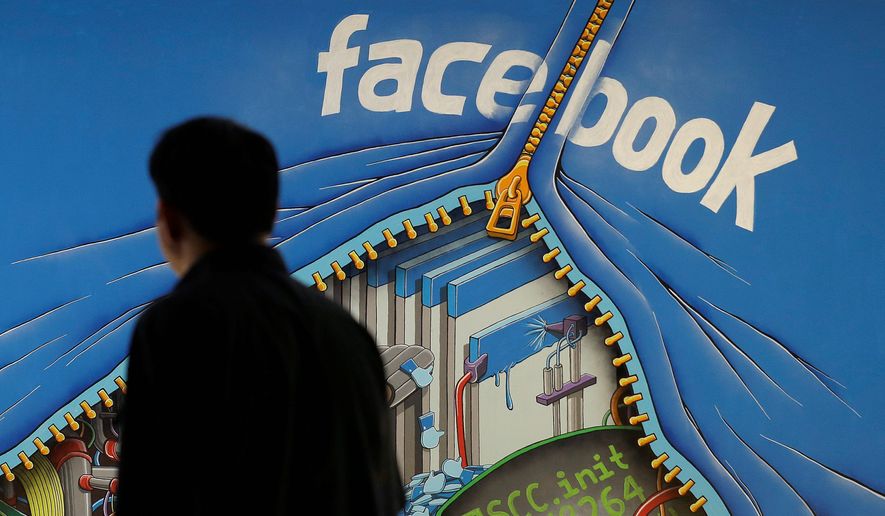A small West Virginia newspaper chain’s antitrust lawsuit against Google and Facebook is blazing a trail, industry insiders say, for news outlets struggling to get out from under the thumb of Big Tech.
Doug Reynolds, the founder and managing director of HD Media, filed the federal lawsuit without other news outlets.
More of this type of antitrust litigation seems certain, however, newspaper industry executives say.
“There’s going to be a lot of private antitrust lawsuits brought,” said David Chavern, president and CEO of the News Media Alliance, a trade association for news organizations. “The public lawsuits are going to uncover a great deal through discovery, and that is going to support the private lawsuits.”
Newspapers and other print media have been reeling for years under the onslaught of digital companies. Craigslist first wrested away from print much of the classified advertising market, and behemoths loom over the cyberspace landscape today.
Mr. Reynolds’ lawsuit accuses Facebook and Alphabet Inc.’s Google of illegally manipulating the advertising market. Specifically, the two tech giants control both buying and selling platforms while participating in the lightning-quick auctions between advertisers and publishers.
Mr. Reynolds said Facebook and Google crippled the chain’s Charleston Gazette-Mail, the largest newspaper in West Virginia, by cutting it off from advertisers.
“These companies are more powerful than Standard Oil in its heyday, so no one wants to be the first to take them on,” Mr. Reynolds, a lawyer and former member of the West Virginia House of Delegates, recently told The Wall Street Journal.
He said the current political and legal climate, with Democrats and Republicans considering crackdowns on Big Tech, gave him an opportune time to fight back in federal court.
The lawsuit mirrors legal action filed last year by the Justice Department and dozens of state attorneys general.
Mr. Reynolds’ court filing also echoed the multistate lawsuit led by Texas Attorney General Ken Paxton that accused Google of violating federal and state antitrust and consumer protection laws.
It’s all part of a groundswell of opposition to Silicon Valley tech giants that control a vast swath of the marketplace. More than 1 in every 3 dollars spent on web ads is on Google or Facebook.
Christopher Sagers, a law professor at Cleveland State University, said Mr. Reynolds’ lawsuit faces an uphill battle but isn’t frivolous.
“I don’t think it’s a ‘Hail Mary,’ and it’s not legally dubious,” he said, “but for better or for worse, it’s simply very difficult to win antitrust lawsuits.”
Big Tech defenders say newspapers are corporate dinosaurs that file lawsuits out of mere bitterness.
Mr. Chavern said that outlook comes from a false view that the lawsuits are about “who has the better-targeted advertising.”
Google’s and Facebook’s ownership of both the buying and the selling of advertising give them extraordinary power over ad costs, prices and placement, Mr. Chavern said.
“Google, in particular, seems to own all sides of the market,” he said.
HD Media and others following its antitrust lead will have to prove in court more than lost advertising revenue, which could be chalked up to competition.
“The private company can’t simply say, ‘I’m being harmed,’” said Shubha Ghosh, a law professor at Syracuse University. “You have to show harm to competition.”
Still, Mr. Ghosh envisioned some kind of class action litigation against Google and Facebook by various news media organizations that claim similar harm.
Facebook did not respond to a request for comment from The Washington Times.
A Google spokesperson pointed to a company blog post regarding the Texas lawsuit that calls the claims “misleading.”
It said Google’s involvement in the ad auctions through its Facebook Audience Network is not a secret.
“In fact, it was well-publicized and FAN is one of over 25 partners participating in our Open Bidding,” according to the Google blog post.
The company said it “absolutely” does not manipulate auctions or bidding in ways that favor it or Facebook, nor are its options the only ones available in the marketplace.
Although HD Media has trumpeted its lawsuit as the first of its kind by a news media company, it is more accurate to say it is the first from a newspaper chain, Mr. Sagers said.
He cited Genius Media Group v. Google, which was filed in December by news magazines such as The Nation and The Progressive. Another case was Sweepstakes Today v. Google.
Those lawsuits do not involve news media exclusively and incorporate complaints about music publishing and other web outfits.
Legal scholars highlighted the distinction between manipulation and monopolization. Because they must prove manipulation, the private plaintiffs could face an uphill battle.
There is still a clear symbiotic relationship between the public and private actions, said John Lopatka of Penn State University law school.
“If the plight of newspapers is a function of technological innovation, then newspapers have no antitrust remedy, however regrettable the damage to newspapers may be,” Mr. Lopatka said. “If newspapers have been injured because of unlawful monopolization by tech platforms, then they have antitrust recourse. But distinguishing between expected network effects in a rapidly evolving digital world and anticompetitive effects is immensely challenging.”
• James Varney can be reached at jvarney@washingtontimes.com.




Please read our comment policy before commenting.